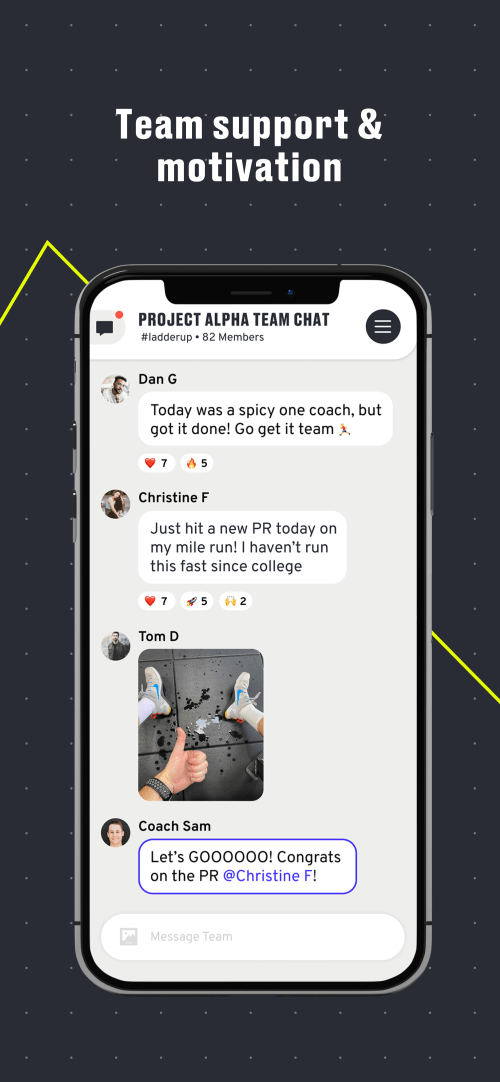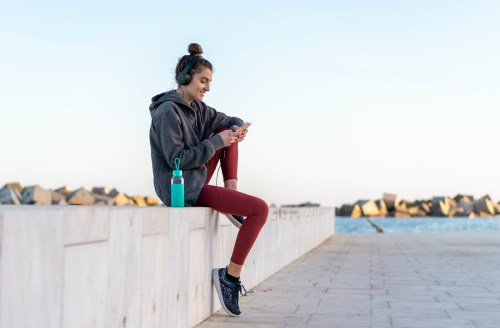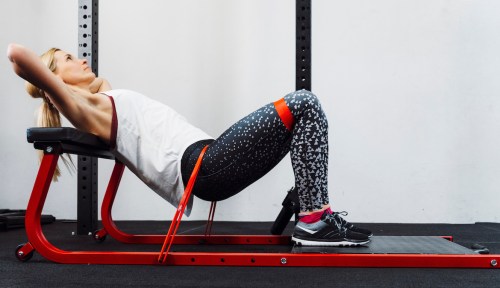When boutique fitness was still alive and well, trainers spent as much time fostering community as they did curating banging playlists and designing sweaty workouts. That is until COVID-19 and the resulting quarantine measures put businesses like Barry’s Bootcamp, SLT, and Mile High Run Club on pause. Now, fitness instructors and on-demand workout apps have more of an impetus than ever before to make digital comradery a priority. And Ladder Teams, a workout app launched today as the “Slack of Fitness,” proves that (socially distanced) teamwork makes the (workout) dream work.
Experts in This Article
Greg Stewart is the CEO of Ladder Teams, a fitness experience that gives users one-on-one access to elite trainers and entire community to champion their success.
A subscription to Ladder Teams costs $59 per month and digitizes all of the bonding that naturally happens in your favorite yoga, spin, or HIIT studio by allowing you to pick a program taught by some of the country’s best instructors (like Jennifer Jacobs of Peloton and Taylor Walker of Barry’s Bootcamp) and assigning you to a “team” with other users who choose that same trainer. As you move through the exercise regimen workout-through-workout, you’ll be able to interact with the instructor and your teammates through an in-app chat room that looks a lot like a fitness-friendly Slack—which keeps coworkers connected—and allows you to celebrate PRs, tough workouts, and great rest days in the company of others.
“Folks who used to go to the gym or used to go to a studio and get a group fitness experience are craving a community element that really became core to their fitness life and their fitness experience.” —Greg Stewart, CEO of Ladder
In a sense, quarantine turbo-charged the trend of increased community in the world of digital fitness that was already on our radar in late 2019. These sweat-centric apps are projected to grow 21.1 percent by 2026, reaching a global net worth of $10.1 billion. In late 2019, Chris Stadler, chief marketing officer at Tonal, told Well+Good that making the apps themselves a social network would be the next logical next step for anyone. “We know community can be a huge motivator, and our members have organically latched on to sharing their stats, favorite coaches, or programs they have completed within the group, so a natural progression would be to enable interactions within our product or via our app,” he said. In the isolating, stressful wake of COVID-19 Ladder also recognized that need.

As quarantine measures ramped up, Stewart and his team saw more and more opportunity for honing the social component of on-demand fitness. “[COVID-19l was just a huge lightbulb and an accelerator for us to make sure that we put all of our efforts and resources into this product,” Greg Stewart, CEO of Ladder, tells Well+Good. “Folks who used to go to the gym or used to go to a studio and get a group fitness experience are craving that community element that really became core to their fitness life and their fitness experience. That’s just been gone with COVID, so with Ladder, we’re bringing back that social, connective tissue.”
Erica Robles-Anderson, PhD, a professor at New York University who focuses on how technology creates a sense of space, looks at the interactions taking place on Ladder, Peloton, Tonal, Mirror, and more. She sees a fitness future that’s part-game, part-sweaty utopia: an online gym that’s first pillar is community. “What you end up with is a new set of online spaces that help us feel like we’re doing something personal. But, at the same time, we’re doing it together with a new set of people who have the same set of feelings about how they want to live their lives,” says Dr. Robles-Anderson. Clearly, during COVID-19, many of us want to live a life in which social fitness keeps us accountable, inspired, and ready to sweat.
Sign Up for Our Daily Newsletter
Get all the latest in wellness, trends, food, fitness, beauty, and more delivered right to your inbox.
Got it, you've been added to our email list.










